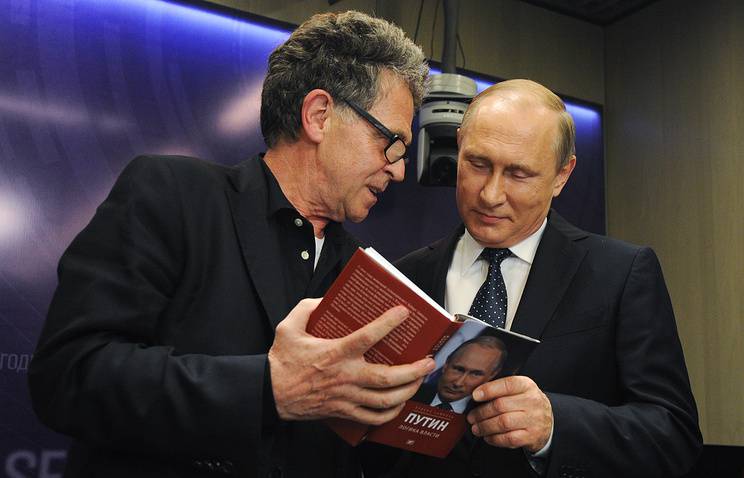According to an extensive investigation by German news magazine Der Spiegel, Paper Trail Media, ZDF, and Istories, renowned German journalist Hubert Seipel received hundreds of thousands of dollars from Russian sources to fund books portraying Russia and President Vladimir Putin in a positive light.
Seipel publicly denied he had ever received money from the Kremlin. However, he lied, an analysis by journalists from Paper Trail Media, Der Spiegel, ZDF, and IStories who analyzed the leaked Cyprus legal documents as part of the "Cyprus Secrets" project shows.
The confidential documents from a Cypriot financial services provider show Seipel signed a "sponsorship contract" in 2018 that would pay him $660,000 in three installments for a book on Russian politics. The contract stated the payments carried no obligations regarding the book's contents.
The money came from offshore company De Vere Worldwide Corporation, which the investigators found to be linked to sanctioned Russian oligarch Alexei Mordashov, a longtime major shareholder in the travel company TUI with close Kremlin ties. Mordashov also held shares in Bank Rossiya, which Russia experts see as Putin's personal financial vehicle.
"Seipel, a renowned journalist, was paid to explain Russian politics to the Germans in his books and films, but also as a popular talk show guest," Der Spiegel wrote. "Seipel promoted trust and understanding and, incidentally, reinforced the political narratives that the men in Moscow liked."
Per Der Spiegel, Seipel constantly complained that Russians were portrayed as the bad guys in Western media. He claimed disinformation was "normal all over the world," not just in Russia. After opposition leader Alexei Navalny's poisoning, likely by Russian agents, Seipel did not condemn it, saying "Novichok is now everywhere, he (Navalny) has many enemies."
Seipel's 2021 book, Putin's Power, contained, "supposed 'common sense,' there was harsh criticism of NATO and the USA, and Russia's legitimate security interests were repeatedly emphasized," Der Spiegel reported.
Eastern European historian Franziska Davies criticized the book, saying, "Instead, many passages reveal an appalling ignorance of those who experience discrimination and marginalization in Russia."
When Seipel's first Putin book was released in Moscow in 2015, Putin appeared as a star guest. Seipel signed a copy with a personal dedication to the autocrat, and they smiled together for cameras as Russian state media covered it heavily.
"The Kremlin celebrates Seipel," the Frankfurter Allgemeine Zeitung commented then.
When asked in a 2021 radio interview if he had ever received money from Russia, Seipel replied "No" after initial hesitation.
Der Spiegel concluded Seipel either lied publicly about the payments or was "suppressing what the sponsorship money from Mordashov's circle was almost certainly intended to be: bribe money for pro-Putin reporting."
Both Seipel's publisher Hoffmann und Campe and his past employer NDR said they are investigating the matter, with NDR stating Seipel should have disclosed any conflicts of interest.
In his response to Der Spiegel, Seipel acknowledged the payments from Mordashov but claimed they were for "book projects" only and carried no obligations. He accused Der Spiegel of "political campaign journalism."
Der Spiegel remained highly critical of Seipel, writing, "Seipel was obviously colossally wrong" in his overly optimistic assessments of Putin, and "above all with regard to his relationship with Putin: he had never built up any real closeness to the man in the Kremlin, he had probably neither understood nor correctly assessed him."
Related:
- Report: Western media underestimate Russian propaganda's effectiveness
- Germany's historical responsibility towards Ukraine
- Russian propaganda exploits German feeling guilt for attacking USSR
- Why we need a discussion about Germany's historical responsibility toward Ukraine
- Controversial German leftist Wagenknecht announces new party, slamming the government as the worst ever




